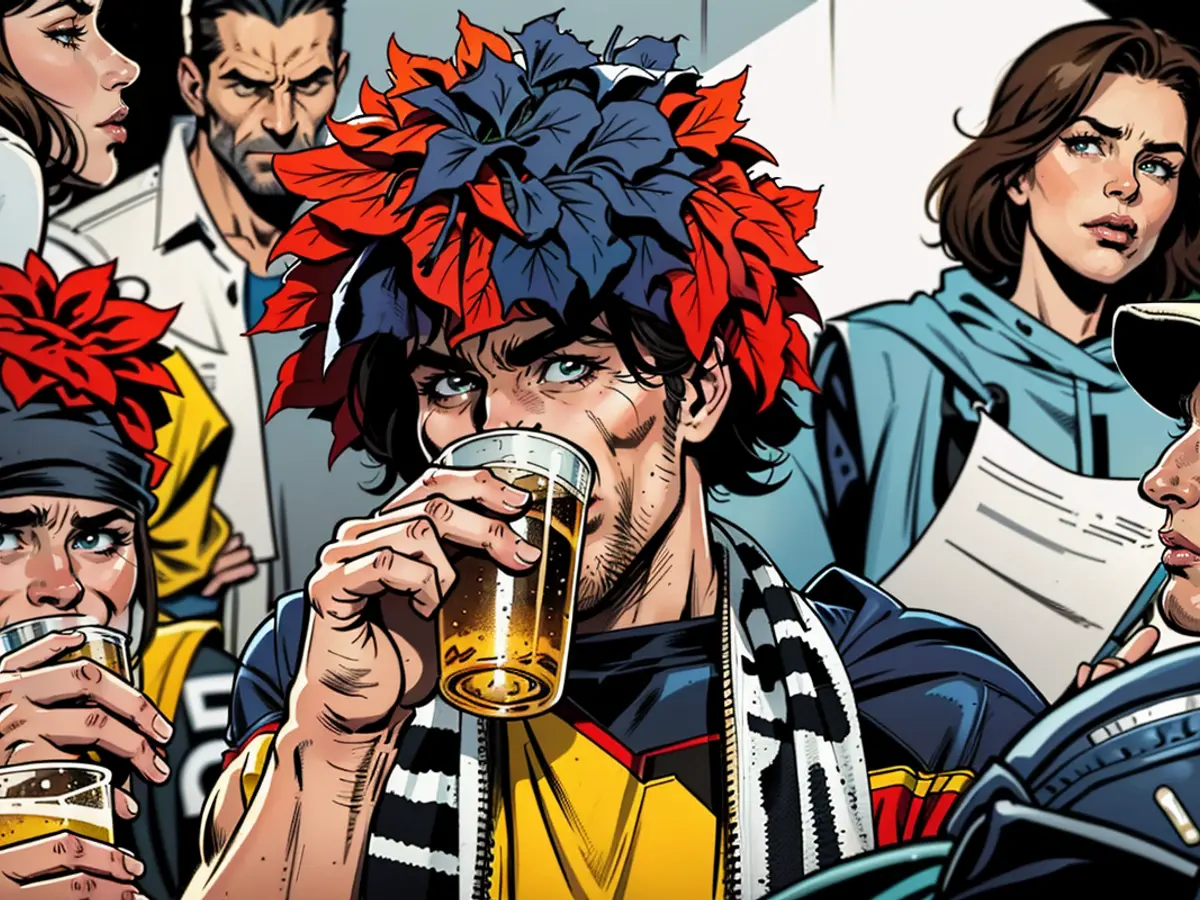Good to know - Beer makes us have to go to the loo more often - a trick to increase stamina
It's quitting time for the loyal beer companion and cheerful supporter – beer. And it rarely comes alone. For the first sip, a second, third, sometimes a fourth, and often at the most inconvenient moment, when the decision-making threshold is almost in the air, the bladder knocks. It can become quite urgent. Beer, after all, is also a bladder stimulant. When we drink beer, we have to urinate more often. That's just how it is. There are rumors of a trick that helps against the annoying urge to urinate. Is it true or just hogwash?
Beer stimulates the need to urinate, in part due to the alcoholic components of beer. The body is motivated to get rid of alcohol, which is a nerve toxin, as quickly as possible. Through alcohol, the secretion of the hormone ADH is temporarily inhibited. This hormone is responsible for keeping fluids in the body longer. The suppression of the hormone, in turn, results in more urine production than with non-alcoholic beverages. The carbon dioxide in beer also increases the pressure on the bladder.
Beer makes us need to urinate more
The more fluid in the bladder, the further it stretches, the bladder wall becomes thinner. How quickly the bladder fills depends, among other things, on individual drinking habits, the efficiency of the kidneys, and gender. In women, the bladder's capacity is smaller, which is why they typically have to urinate more frequently than men.
When the bladder is full, mechanoreceptors in the bladder wall send a signal to the brain that a urination event is imminent. The so-called "Don't break the seal" trick (approximately: Don't break the seal) is supposed to help in delaying the urge to urinate. The theory behind it: Once you've been to the bathroom, you have to go again. The brain, in turn, would supposedly be reminded of the bladder, causing it to pay more "attention" to it in the future. Therefore, it is better to postpone urination for as long as possible.
Gain more control over the urge to urinate?
The truth is, the bladder can only be trained to a certain extent. Once a certain level of fullness is reached, urination cannot be delayed indefinitely. The supposed trick can even be counterproductive. Prolonged delay in urination can actually lead to a loss of control over the urge to urinate. Urologist Holger Uhthoff advises against waiting too long to urinate in an interview with the "SZ." In men, this could even lead to a urinary retention in the worst-case scenario.
What really helps? The answer is simple: change the drink. Alcohol-free beer has a lesser effect. However, the better choice are beverages that do not contain alcohol, carbon dioxide, or caffeine. Coffee, soft drinks, energy drinks, and many fruit juices are also bladder stimulants. The boring but effective choice for on-the-go: still water.
Sources: Spectrum, German Incontinence Society, Funk, SZ
Drinking beer can cause increased urination due to its alcoholic components and carbon dioxide, which both trigger the need for the body to quickly eliminate fluids. To gain more control over the urge to urinate, considering a switch to alcohol-free beverages or those without carbon dioxide, caffeine, or alcohol, such as still water.








